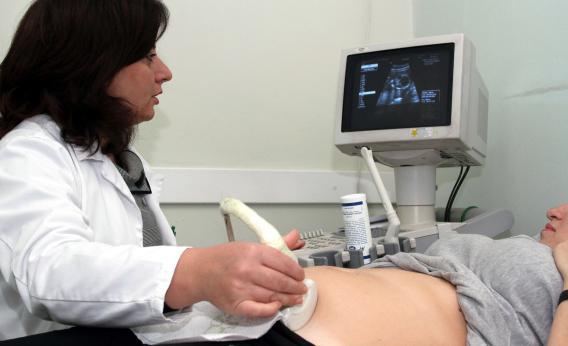One of the most immediate and dramatic changes brought by the Affordable Care Act has been the new requirement that insurance companies cover a policy holder’s children until age 26 as dependents, a move that extended insurance coverage to 3.1 million young people. By and large, this group doesn’t put much strain on the system, what with the “young and healthy” aspect. One exception to the rule, however, is pregnancy. In 2008, 12 percent of women ages 15 through 25 got pregnant. Unfortunately, however, the new mandate requiring insurance companies to cover this age group doesn’t extend to maternity care, and a large number of young women are falling through the cracks.
As the Washington Post reports, pre-existing laws require insurance companies to cover pregnancy both for a policy-holder and his/her spouse. But the law doesn’t extend that requirement to other dependents like children. This is part of a larger tendency in corporate America to assume that the public still lives in an Ozzie and Harriet world, where childbirth is associated with things like marriage and financial independence. The problem is: That’s not the world we live in anymore. While it’s still true that the majority of women who give birth are married, for the under-30 set, the majority of mothers are actually single. And a good number of them, especially in the under-26 category, rely on their parents for financial support and, now, health care. A health care system that only covers maternity care for policy-holders and spouses leaves these young women out. The average cost of an uncomplicated childbirth is over $10,000 now; foisting that bill on young single mothers-to-be who are likely already facing financial difficulties flies in the face of everything health care reform was supposed to accomplish.
The fix for this problem is actually quite simple and doesn’t require tinkering with the ACA at all. Congress could extend the Pregnancy Discrimination Act of 1978 to mandate coverage not just of policy-holders and spouses, but of dependents under 26. Fears that this kind of move would be seen as “encouraging” single, young motherhood need to be balanced against the greater needs of pregnant young women. For many young women who don’t have coverage, it becomes all too easy to skimp on prenatal doctor visits, which dramatically escalates the possibility of health problems down the road that increase the cost on the taxpayer and threaten the health of the newborns. Anyway, the genie’s out of the bottle. Gaps in health care coverage didn’t do anything to prevent the dramatic rise in single motherhood in the first place, so there’s no reason to think closing those gaps will influence the rates one way or another.
